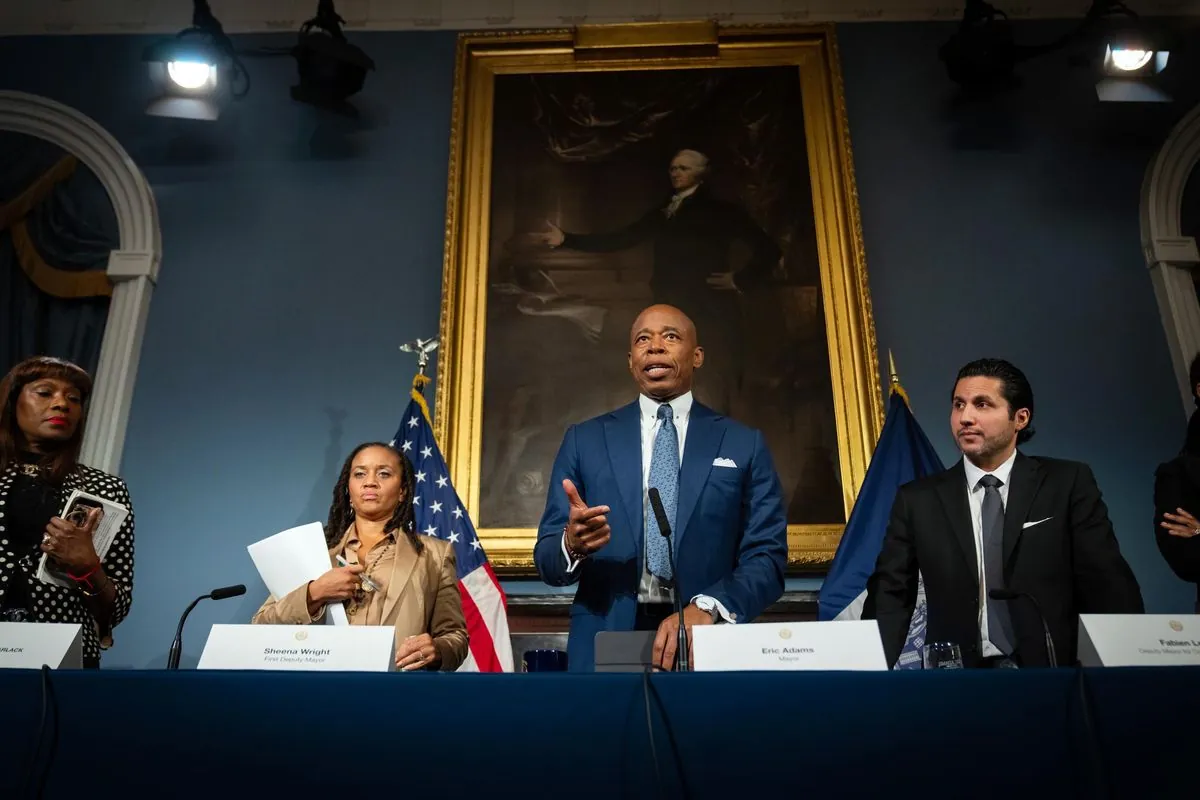Eric Adams, New York City's 110th mayor, finds himself at the center of a political storm following his indictment on federal bribery charges. The Brooklyn native, who assumed office on January 1, 2022, is facing a five-count indictment that has sparked intense debate within the Black community he represents.
Adams, the second African American to hold the city's highest office, has long been a significant figure in New York's political landscape. Born in Brownsville in 1960, he served 22 years in the New York City Police Department before transitioning to politics. His journey from a working-class background to the mayoralty resonated with many Black New Yorkers, who saw him as more than just a political leader.
The indictment has elicited diverse reactions from the Black community. Some view it as a betrayal of trust, while others see it as an attack on hard-won representation. This division was evident when a group of Black clergy leaders gathered outside City Hall to pray for the mayor, chanting "Four more years!" Adams, addressing the group, said, "What I want in your prayer is to continue to lift me up, and this administration, with the strength to move forward."
The charges against Adams are serious. Federal prosecutors allege he solicited and accepted illegal campaign contributions and over $100,000 in luxury travel perks from Turkish officials and other foreign nationals. In exchange, they claim he performed official favors, including expediting the opening of a Turkish consulate building in Manhattan despite safety concerns.
This situation has precedent in Black political history, where leaders who rose from the community to high office faced legal troubles and then sought voter support. Nearly two years ago, New York voters elected a historic number of Black leaders to local and statewide offices. Some fear Adams' indictment may tarnish this broader political representation.
Rev. Al Sharpton, president of the National Action Network, who has known Adams for over 35 years, expressed caution: "I think that as we achieve power, we ought to make sure we handle it in a way that protects the people that helped you achieve it. But we also shouldn't rush and throw everybody under the bus because of accusations."
The indictment has prompted calls for Adams' resignation from various quarters. New York City Council Speaker Adrienne E. Adams stated, "I ask the mayor to seriously and honestly consider whether full attention can be given to our deserving New Yorkers who need our government to be sound and stable."
However, Adams maintains strong support from some constituents. Assemblywoman Rodneyse Bichotte Hermelyn noted, "We all know that an indictment is not a conviction," referencing the saying that prosecutors "can indict a ham sandwich."
Throughout his political career, Adams has been known for his controversial statements and unconventional style. He has implemented initiatives to combat gun violence and proposed converting office buildings into affordable housing. As a former police officer, he has been a vocal advocate for police reform while maintaining a focus on public safety.
Despite the challenges, Adams remains determined to stay in office. He shared that he's received messages of support, saying, "Eric, stay the course. Don't be distracted."
As the legal process unfolds, the debate within New York's Black community continues, balancing the desire for representation with the need for accountability in government.
"This is what we fought for and many of you were part of the campaign."
